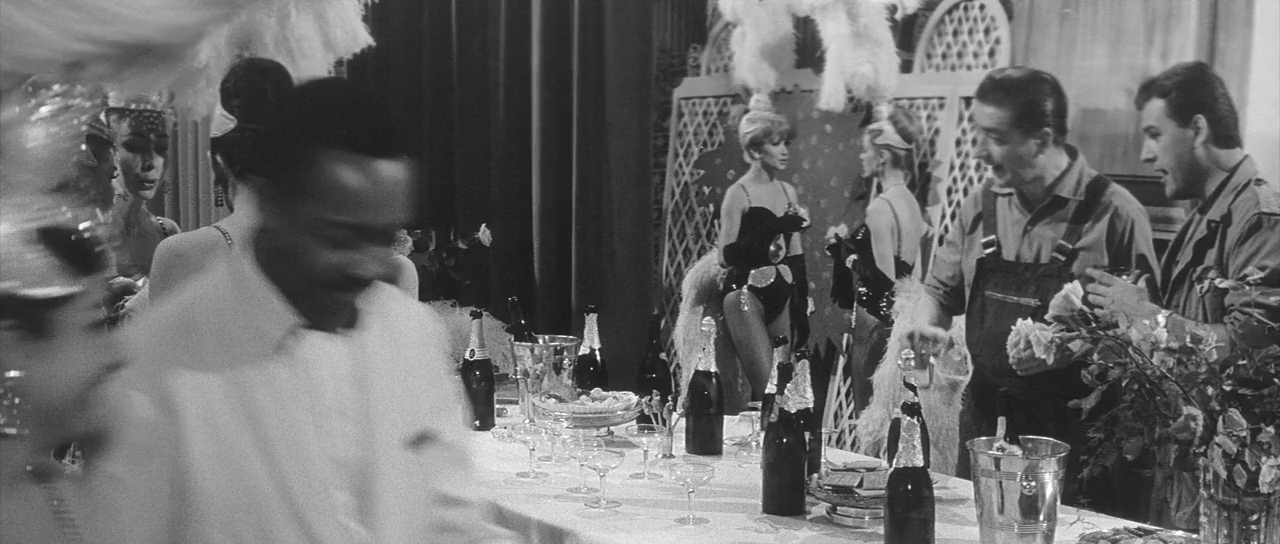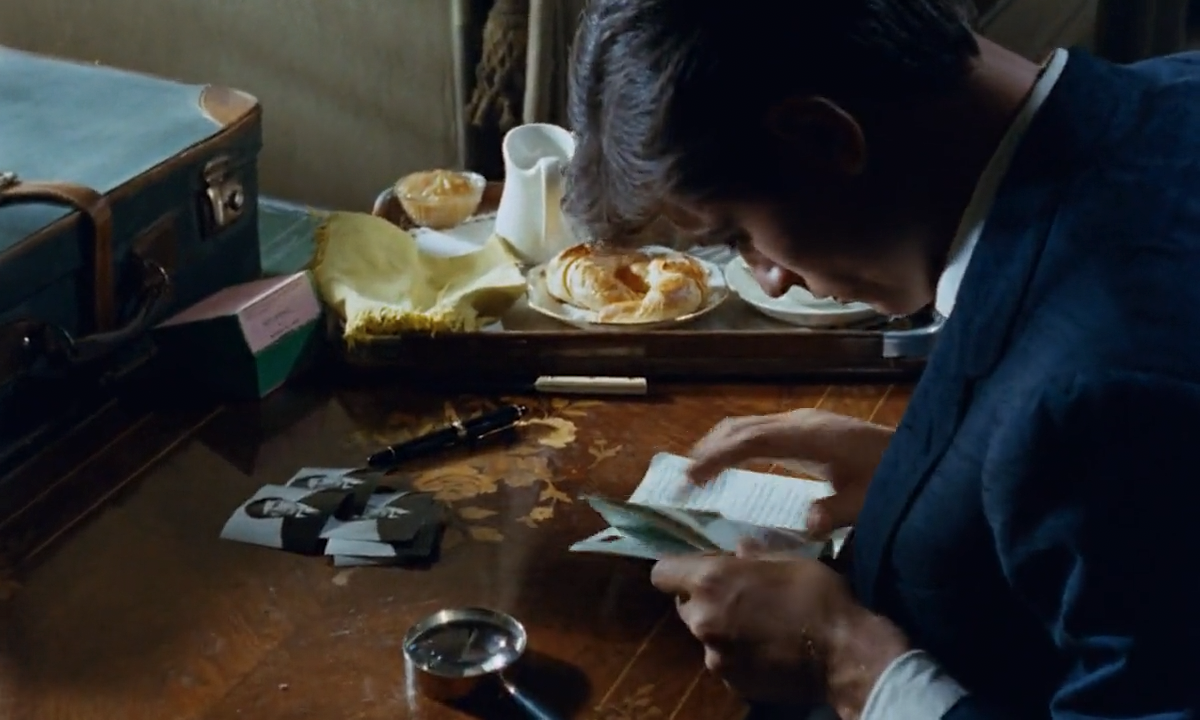Les abysses [The Depths] (Nikos Papatakis, 1963)
Dec
2
sister's birthday

Michèle and Marie-Louise (real-life sisters Francine and Colette Bergé) as the real-life Papin sisters in their shared bedroom. DP: Jean-Michel Boussaguet.
Sisters for [OP's] sister's birthday.
france
“Whoever dies for the country hasn't lived in vain. I, on the contrary, will live for the country because I'm not that stupid.”Touche pas à la femme blanche [Don't Touch the White Woman!] (Marco Ferreri, 1974)
Nov
23
potato chips

Two white Frenchmen – in a University of Columbia and a CIA sweatshirt respectively – comment on the “period piece” they're in. CIA man (Paolo Villaggio) stuffs his face with potato chips. DP: Étienne Becker.
– George A. Custer
Mélodie en sous-sol [Any Number Can Win] (Henri Verneuil, 1963)
Nov
22
banquet

Backstage at the Cannes casino, stars and stagehands enjoy their well-deserved end-of-season banquet. Just walking in front of the showgirls is piano player Sam (Jimmy Davis). DP: Louis Page.
Compartiment tueurs [The Sleeping Car Murder] (Costa-Gavras, 1965)
Nov
8

Eliane Darrès (Simone Signoret) – comédienne, by herself – takes a long hard look at her table-set-for-two. DP: Jean Tournier.
La horse [Horse] (Pierre Granier-Deferre, 1970)
Aug
23
baguette

Auguste Maroilleur (Jean Gabin) at the head of a long table, covered in Good Things (wine, butter, coffee, and fresh milk). He cuts a baguette with his pocketknife. DP: Walter Wottitz.
– Ah, regarde, c'est Tati !
– Tati qui?
– Tati, comme Mon Oncle.Simone Barbès ou la vertu (Marie-Claude Treilhou, 1980)
Jun
19
pâté

Two female porn theatre ushers (Ingrid Bourgoin and Martine Simonet) looking bored. They sit under two large eye-shaped neon lights. Between them a small table with various half-consumed items, including part of a baguette with pâté. DP: Jean-Yves Escoffier.
“Why bother having money when you can spend other people's?”Plein soleil [Purple Noon] (René Clément, 1960)
Jun
15
croissants

Tom Ripley (Alain Delon) going though his passport over breakfast. Multiple passport photos, a fountain pen, and a magnifying glass take precedence over his fresh croissants. DP: Henri Decaë.
– Philippe Greenleaf
Série noire (Alain Corneau, 1979)
Apr
9
canned pilchards

Franck Poupart (Patrick Dewaere) about to dig into a can of pilchards. A pile of French women's magazine “marie claire” is next to him on an otherwise bare coffee table. DP: Pierre-William Glenn.
“Trouble is, she likes everything. She's always happy. She desires nothing, envies no one, is curious about nothing. You can't surprise her. She doesn't notice the humiliations, though they happen to her every day. It all rolls off her back like some waterproof material. Zero ambition. No moral code. Not even a whore's love of money.”Io la conoscevo bene [I Knew Her Well] (Antonio Pietrangeli, 1965)
Apr
2
cocktails
.png)
A lone Roberto (Enrico Maria Salerno) at a lively cocktail party in Rome's hypermodern EUR district. DP: Armando Nannuzzi.
– the writer
Max et les ferrailleurs [Max and the Junkmen] (Claude Sautet, 1971)
Mar
16

Lily (Schneider) and Max (Piccoli) at a small table decked with good food, good wine, and quite a few wads of cash. DP: René Mathelin.